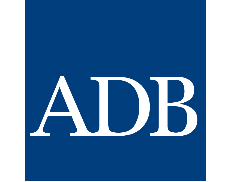Share
Print

Date Published: 23-Apr-2024
Deadline of Submitting EOI: 13-May-2024 11:59 PM Manila local time
Consultant Type: Firm
Selection Method: Quality and Cost-Based Selection (QCBS)
Selection Title: Livable Cities Investment Program
Package Number: SUDA/LCIP/QCBS-02
Package Name: Capacity Development Program For The Spatial And Urban Development Agency Of Georgia
Engagement Period: 10MONTH
Consulting Services Budget: USD 653,155
Source: International
Technical Proposal: Simplified Technical Proposal (STP)
Approval Number: 6024
Approval Date: 21-Nov-2019
Estimated Commencement Date: 01-Jul-2024
Country of assignment: Georgia
Primary Expertise: Capacity Development
TOR Keywords: Capacity Development Program for the SUDA
Objective and Purpose of the Assignment
The Asian Development Bank (ADB) is supporting the Government of Georgia to develop planning and to build capability to better integrate climate change into development planning. Georgia is experiencing rapid economic growth, while at the same time willing to preserve its unique nature, landscape, and culture, which as a result, is placing pressure on governments to plan and develop territories in a long-term and sustainable manner. The government recognizes that in order to improve urban development, it must find ways of addressing: (i) unplanned and unregulated urban development; (ii) important territorial inequalities, (iii) socio-economic development opportunities, and (iv) the institutional capacity of the central and municipal administrations to plan and create livable cities. In 2018, Parliament adopted the Georgian Code on Spatial Planning, Architectural and Construction Activities (hereinafter referred to as “the Code“) of which the main parts entered into force on June 3rd, 2019 in order to enable better spatial planning. The establishment of the Spatial and Urban Development Agency (SUDA) in 2022, a Legal Entity Under Public Law (LEPL), under the Ministry of Economy and Sustainable Development (MOESD) and endowed with a clear mission and resources, confirms that planning is now considered a national priority. SUDA’s main function is to develop and manage policies for Georgia’s spatial and urban development. Its mission is to foster Sustainable Spatial Development of Georgia. SUDA’s main pillars of work are the following: Produce and implement the National Spatial Development Plan of Georgia; Assist local municipalities to coordinate their land use master plans; Harmonize current relevant legislation with the OECD best practices; Increase awareness about the benefits and necessity of Spatial/Urban planning and its everlasting effect on climate change and sustainable development of the country; strengthen cooperation between state, academic and private agencies around spatial and urban planning. In light of the challenges and government ambitions, ADB supports SUDA via a Capacity Development Program, to enhance SUDA’s capacities to deliver on its mandate. The quality of planning documents and their embedding into development process is essential to ensure that any future investment is driven by green, resilient, and low-carbon considerations while also meeting development needs. ADB and SUDA are seeking to engage a consultancy firm to provide technical advisory services to support SUDA – and key governmental Agencies and selected municipalities on an ad-hoc basis - in strengthening their capacity in spatial and urban planning, with a focus on long term and sustainable development.
Main Objective The objective of the Capacity Development Program is to strengthen SUDA’s development strategies and plans by building its capacity and mechanisms in spatial and urban planning based on international standards and European practices. With enhanced capacities and strengthened urban planning function, planning outputs and spatial knowledge should progressively be more integrated into policy making and development processes, and become a tool for vision and implementation. Through its multi-disciplinary work, SUDA should be able to position itself as a provider of strategic advice to government agencies, municipalities, territorial stakeholders (e.g. economy, energy, housing, environment, university fields), and to improve linkages with decision-makers. The Program will provide SUDA with modern, integrated, multi sector approaches. The program will involve provision of training materials, working group, study tour and workshops focused on disseminating methodologies for and experiences in strategic planning, urban planning processes, GIS and organizational reform. Planning and mapping instruments will also transition to digital, online, flexible and multi-scalar tools, with standardized methods. In the mid-term, the program will also lay the ground for a larger capacity development program and shall provide SUDA with a framework and key recommendations for capacity development, competencies and skills upgrade in the next three years. The main beneficiary of this program will be SUDA’s staff. Specific activities will also involve key governmental agencies (e.g., National Environmental Agency, MDF, Resort Development Agency) to ensure that planning practices are progressively understood and integrated in infrastructure, economic and development planning. Given the limited experience of municipalities and their limited staffing, years of support and technical assistance will be required from national agencies to raise the capacity of municipalities. Scope of services and activitiesThe Capacity Development Program will have three key components with the following outputs: Output 1 – Enhancement of technical skills for urban planning and development of master and local plans; Output 2 – Strengthening of urban planning function with efficient organizational arrangements and partnership development; Output 3 – Establishment of a shared urban database and upgrade of urban planning tools.The draft Terms of Reference (TOR) is attached. Detailed TOR will be available at RFP stage.